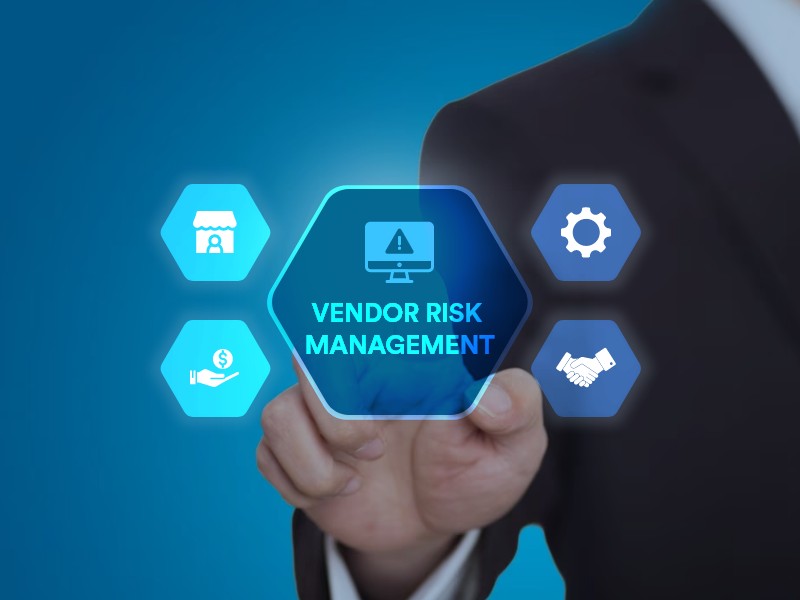Will Vendor Portfolio Assessment Help you find Long-Term Vendors?

What factors do you consider when you are looking for business partners? Someone with whom you can build a business relationship for the long term. But how do you assess them if they are trustworthy or not? Evaluating them based on their past projects and references from their existing and previous client seems to be a feasible way to gain trust.
Vendor portfolio assessment is critical if you are seeking to make informed decisions when selecting and engaging with external suppliers, contractors, or service providers. It provides valuable insights into a preferred vendor’s capabilities and track record. By scrutinizing their past projects and expertise, businesses can gauge the vendor’s ability to meet specific requirements, deliver quality outcomes, and align with the organization’s goals and values.
You can think of it as a strategic procedure that aids organizations in mitigating risks, optimizing costs, and ensuring the successful execution of your projects or facility services. This assessment also helps identify potential red flags, such as a history of missed deadlines or subpar performance, which can be crucial in avoiding costly mistakes and project failures. Vendor portfolio assessment based on their past projects and expertise additionally enhances an organization’s overall competitiveness and sustainability. Based on all the gathered insights, you can build strong and mutually beneficial relationships with vendors that will eventually contribute to the long-term success of your business.
Throughout this article, we will explore various aspects of vendor portfolio assessment, including the criteria for evaluating past projects, methods for assessing vendor expertise, and the role of technology in streamlining the assessment process.
How do we Evaluate Vendors based on Past Projects?
Evaluating vendors based on past projects is a crucial aspect of transforming your vendor management process. It systematically analyzes a vendor’s track record and performance history to determine their suitability for a specific project or engagement. Here are steps and criteria for effectively evaluating vendors based on past projects:
1. Define Evaluation Criteria:
Start by defining clear and specific criteria that you will use to evaluate vendors. These criteria should align with your project or service requirements. Standard evaluation criteria include:
a. Project Quality:
Assess the quality of the vendor’s previous work, including the outcome, deliverables, and overall performance.
b. Timeliness:
Evaluate whether the vendor meets project deadlines and milestones consistently.
c. Budget Adherence:
Determine if the vendor can deliver within budget or if they tend to exceed initial cost estimates.
d. Scope Management:
Examine how well the vendor manages project scope changes and deviations.
e. Client References:
Contact previous clients to gather feedback on the vendor’s performance, communication, and overall satisfaction .
f. Industry Experience:
Assess whether the vendor has experience in your specific industry or domain.
g. Technical Expertise:
Evaluate the vendor’s technical capabilities and expertise relevant to your project.
2. Collect Vendor Information:
Request comprehensive information from the vendor regarding their past projects. This may include project portfolios, case studies, references, and detailed project reports. Ensure the information is up-to-date and relevant to your needs.
3. Review Project Portfolios:
Examine the vendor’s project portfolio to gain insights into the diversity and complexity of their previous work. Look for projects that closely resemble the one you are planning. Pay attention to industries served, project size, and types of solutions provided.
4. Analyze Project Outcomes:
Assess the success of the vendor’s past projects. Consider factors such as whether the projects met client objectives, delivered on time and within budget, and achieved the desired quality and functionality.
5. Contact References:
Reach out to the vendor’s references or previous clients. Ask specific questions about their experiences with the vendor, including communication, problem-solving, and overall satisfaction. Authorities can provide valuable insights into the vendor’s reliability and professionalism.
6. Evaluate Timeliness and Budget Adherence:
Review the vendor’s track record in meeting project deadlines and staying within budget. Delays and cost overruns can be red flags, so assess how well the vendor managed project timelines and finances in the past.
7. Assess Scope Management:
Analyze how the vendor handled changes in project scope in previous engagements. Effective scope management is essential to prevent project creep and control project objectives.
8. Consider Industry Experience:
Determine whether the vendor has relevant industry experience. Vendors with industry-specific knowledge are often better equipped to understand your unique needs and challenges.
9. Evaluate Technical Expertise:
Assess the vendor’s technical skills and expertise, especially if the project requires specialized knowledge or technologies. Look for certifications, qualifications, and evidence of staying up-to-date with industry trends.
10. Score and Rank Vendors:
Assign scores or rankings to each vendor based on your evaluation criteria. This structured approach can help objectively compare vendors and make informed decisions.
11. Conduct Interviews:
Conduct interviews or meetings with shortlisted vendors to discuss their past projects in more detail if necessary. This can provide additional insights into their capabilities and approach.
12. Document Findings:
Keep detailed records of your vendor evaluations criteria, including notes from client references, project analysis, and interviews. Establishing clear evaluation benchmarks ensures an objective comparison, making this documentation invaluable when making a final vendor selection.
How To Evaluate Expertise and Capabilities of Potential Vendors?
Evaluating the expertise and capabilities of potential vendors is a critical step in the vendor selection process. It helps ensure you choose vendors who can effectively meet your specific project or service needs. Here are steps and strategies for evaluating the expertise and capabilities of potential vendors:
1. Define Your Requirements:
Start by clearly defining your project or service requirements. What skills, knowledge, and capabilities are essential for success? Understanding your needs is crucial before assessing vendor expertise.
2. Assess Qualifications:
Review the qualifications of the vendor’s team members who will be directly involved in your project. Look for relevant degrees, certifications, and training in the areas required for your project.
3. Evaluate Relevant Experience:
Examine the vendor’s track record and past projects to assess their experience in similar domains, industries, or project types. Evaluate whether their previous work aligns with your specific needs.
4. Check References:
Contact references provided by the vendor. Ask about their experiences working with the vendor, including the vendor’s technical competence, problem-solving abilities, and overall performance.
5. Assess Technological Capabilities:
Evaluate the vendor’s technical capabilities if your project relies on specific technologies or tools. Ensure they have the required infrastructure and skills to support your project.
6. Evaluate Problem-Solving Skills:
Assess the vendor’s ability to solve complex problems and adapt to changing project requirements. This is particularly important in dynamic project environments.
7. Consider Innovation:
Evaluate the vendor’s history of innovation and their ability to bring new ideas or solutions to the table. Innovative vendors can add value and help you stay competitive.
8. Assess Communication Skills:
Effective communication is essential for successful collaborations. Evaluate the vendor’s communication skills, responsiveness, and ability to understand and address your communication preferences.
9. Visit Facilities (if applicable):
If the nature of the project allows, consider visiting the vendor’s facility maintenance contracts to observe their work environment and capabilities firsthand. This can provide valuable insights.
10. Evaluate Scalability and Resources:
Determine if the vendor has the necessary resources, including personnel and equipment, to handle your project’s scope and scale. Ensure they can accommodate any potential growth or changes in project demands.
11. Score and Rank Vendors:
Assign scores or rankings to each vendor based on your evaluation criteria. This structured approach can help you objectively compare vendors.
What are the Benefits of Conducting a Vendor Portfolio Assessment?
Conducting a vendor portfolio assessment offers several significant benefits to organizations. These benefits can positively impact an organization’s efficiency, risk management, cost-effectiveness, and overall success. Here are some of the key benefits of conducting a vendor portfolio assessment:
1. Risk Mitigation:
Assessing a vendor’s past performance and expertise will help you identify potential risks in the initial vendor selection phase and can assist you in avoiding vendors with poor performance, missed deadlines, or ethical issues, reducing the likelihood of project delays or failures.
2. Quality Assurance:
Organizations can evaluate a vendor’s past projects to ensure that they meet the required standards and deliver products or services that meet or exceed expectations, with a particular focus on maintenance quality assurance to verify the consistency and reliability of long-term service performance.
3. Cost Optimization:
Organizations can optimize procurement costs by identifying vendors with competitive pricing, efficient processes, and a history of delivering value.
4. Innovation and Expertise:
Evaluating a vendor’s expertise allows organizations to access specialized knowledge, leading to innovative solutions, improved quality, and access to the latest technologies and trends.
5. Performance Improvement:
Portfolio assessments allow for collaborative performance improvement discussions with existing vendors by using past project data to address shortcomings and enhance performance.
6. Compliance and Ethics:
Assessments help ensure that vendors comply with industry regulations and ethical standards. This is crucial for maintaining the organization’s reputation and avoiding legal and ethical pitfalls.
7. Enhanced Negotiation Power:
Organizations can achieve favorable terms and conditions by utilizing assessment data during contract and SLA negotiations. Vendor negotiation strategies also work well when you assess you vendors methodically.
8. Transparency and Accountability:
Vendor portfolio assessments promote transparency in vendor relationships that can help maintain a clear record of vendor achievements and issues.
9. Streamlined Vendor Management:
Organizations can streamline their vendor management processes by having a structured approach to vendor assessments, resulting in streamlined vendor onboarding, monitoring, and relationship management.
10. Long-term Value Creation:
Effective vendor portfolio assessments create long-term value for the organization that drives growth and innovation by strategically choosing and managing vendors.
What are the Major Challenges in Vendor Portfolio Assessment?
While essential for effective vendor management, vendor portfolio assessment can present several challenges that organizations must navigate. These challenges can vary depending on the complexity of the vendor landscape and the specific industry. Here are some significant challenges in vendor portfolio assessment:
Data Availability and Accuracy:
Gathering accurate and comprehensive data on vendor performance and past projects can be challenging. Vendors may not always provide complete information, and data may be outdated or difficult to verify.
Data Integration:
Organizations often work with multiple vendors across different departments or business units. Consolidating data from various sources and systems for a holistic assessment can be complex and time-consuming.
Subjectivity:
Assessing vendor expertise and capabilities can involve a degree of subjectivity. Different stakeholders may have varying opinions on a vendor’s performance, making it challenging to establish consistent evaluation criteria.
Resource Constraints:
Conducting thorough vendor portfolio assessments requires dedicated time and resources. Organizations may face limitations regarding personnel, budget, and tools for conducting evaluations effectively.
Scalability:
As an organization grows and engages with more vendors, managing the assessment process becomes more complex. Scaling up the assessment process while maintaining quality and consistency can be challenging.
Vendor Resistance:
Vendors may hesitate to share certain information or undergo assessments due to concerns about revealing proprietary processes or confidential data.
Legal and Contractual Limitations:
Contractual agreements and legal constraints may limit how organizations assess vendors, especially if the contract terms restrict data sharing or assessment activities.
Lack of Standardization:
Vendor assessment practices may sometimes lack standardization within an industry or across organizations. This can lead to inconsistencies and difficulties in benchmarking vendors.
Complex Vendor Relationships:
In cases where vendors work together in a consortium or provide integrated services, assessing individual vendor contributions and responsibilities can be intricate.
Changing Vendor Landscape:
Vendors may undergo organizational changes, such as mergers, acquisitions, or restructuring, impacting their capabilities and performance. Keeping assessments up-to-date in such scenarios can be challenging.
Vendor Evaluation Tools and Technology:
Implementing and maintaining vendor evaluation tools and technology solutions can be expensive and may require ongoing training and support.
Data Privacy and Security:
Protecting sensitive vendor data and ensuring compliance with data privacy regulations while conducting assessments can be complex.
Cultural and Language Barriers:
Cultural and language differences can affect communication and understanding when assessing vendors from different regions or countries, making assessments more challenging.
Bias and Preconceptions:
Unconscious bias and preconceived notions about certain vendors or industries can influence assessments. It’s important to maintain objectivity throughout the process.
Conclusion:
In today’s ever-changing business environment, selecting the right vendors is crucial to an organization’s success. To achieve this, vendor portfolio assessment is a key practice that enables businesses to build long-term partnerships with external suppliers, contractors, or service providers. By evaluating potential vendors’ past projects and expertise, organizations can gain valuable insights into their capabilities, track records, and alignment with their goals and values.
To assess potential vendors’ expertise and capabilities, organizations should define their requirements clearly, assess qualifications, check references, evaluate technological prowess, and analyze problem-solving, innovation, and communication skills. This thorough evaluation process ensures that the selected vendor possesses the necessary skills and attributes required for project success. To know how you can simplify and streamline your vendor management process with a facility management software get in touch with our experts at FieldCircle today!


